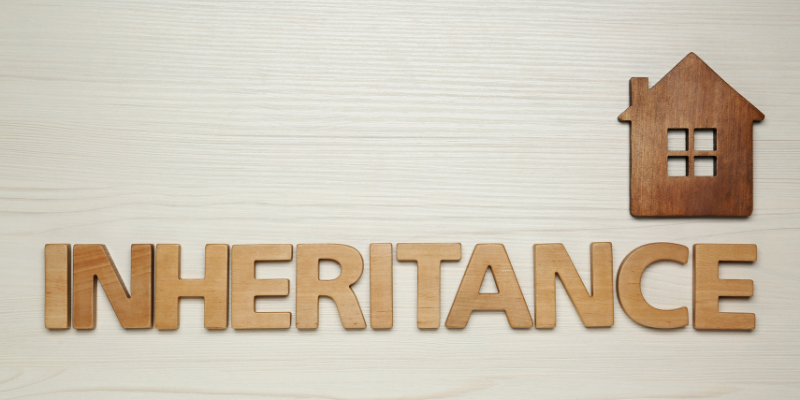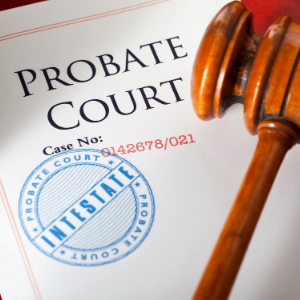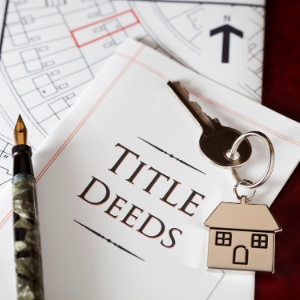
Understanding the Process of Selling Inherited Property in Norfolk, VA
Selling an inherited home in Norfolk, VA, is a complicated procedure that requires careful consideration of local real estate regulations and market conditions. The first stage is to determine whether the property needs to go through probate, which can dramatically affect the schedule and legal responsibilities.
A probate attorney or real estate professional familiar with Virginia inheritance rules might offer important advice. Once legal issues have been resolved, it is critical to assess the property’s condition and determine whether any repairs or upgrades are required to increase its market worth.
Working with a competent local real estate agent can help determine a competitive listing price based on current market trends in Norfolk. Marketing techniques should focus on enticing potential purchasers by emphasizing the house’s distinguishing qualities and location in Norfolk, which is noted for its historical charm and strong community life.
Understanding tax ramifications is also essential; sellers may be required to pay capital gains taxes based on the property’s value increase since it was inherited. If sellers of inherited property in Norfolk are aware of these factors, they can simplify the process and obtain better results.
One way to simplify the process is by working with a trusted homebuyer like Cash For Houses Girl. They specialize in helping homeowners sell their Norfolk house fast without the stress of repairs, showings, or lengthy negotiations.
If you’re in nearby areas like Virginia Beach, Chesapeake, Portsmouth, or Hampton, Cash For Houses Girl can also help you buy homes for cash or connect you with buyers ready to close quickly. This option primarily benefits heirs looking for a fast, hassle-free solution when selling inherited property.
Legal Considerations for Inherited Real Estate in Norfolk, VA
When selling an inherited home in Norfolk, Virginia, it is critical to understand the legal implications to ensure a seamless transaction. First, become familiar with Virginia’s probate rules, which govern how inherited real estate is transferred and sold.
Unless the property is in a trust or has a clear title with shared tenancy and survivorship rights, you may need to go through probate court. Before proceeding with any sale, ensure that the status of the property’s deed and ownership facts are correct.
Consulting with an experienced real estate attorney in Norfolk can assist you in negotiating potential legal issues, such as resolving any outstanding liens or obligations on the property. Understanding the tax ramifications is also essential; inheriting property may result in estate taxes based on its assessed worth.
Complete the appropriate state and federal tax forms for inheritance and capital gains when selling the property. By proactively addressing these legal issues, you can reduce delays and ensure compliance with all local requirements during the home-selling process in Norfolk.
Navigating Probate Court for Real Estate Sales in Norfolk, VA

Understanding the legal processes and requirements for selling an inherited residence is essential when navigating probate court in Norfolk, Virginia. It is also critical to ascertain whether the property is subject to a will or governed by intestate succession laws.
Executives or administrators must submit the required petitions to sell the inherited house to the Norfolk Circuit Court. Obtaining a probate attorney familiar with Virginia’s laws is critical to ensuring all legal documents are correctly submitted and deadlines are met.
Furthermore, using appraisals to determine the property’s fair market value and working with a qualified real estate agent aware of local market conditions might help speed up the sale process. Probate can be complicated, but diligent planning and professional counsel can help make selling an inherited home in Norfolk go more smoothly.
Tax Implications for Selling an Inherited House in Norfolk, Virginia
Understanding the tax implications is critical for successfully selling an inherited house in Norfolk, VA. One key issue is the capital gains tax, which applies to the profit from the sale of the property.
Inherited properties frequently benefit from a step-up in basis, which means that the property’s value at the time of inheritance becomes the new basis for tax purposes. If sold soon after inheritance, capital gains can be significantly reduced, if not eliminated.
However, if enough time passes and property prices rise, sellers may face higher capital gains taxes. Furthermore, federal estate taxes may apply if the estate’s total value exceeds specific legal criteria.
Sellers should also consider Virginia-specific taxes that may affect their circumstances. When selling an inherited home in Norfolk, consult a tax consultant or real estate attorney who understands local and federal tax regulations.
Understanding Capital Gains Tax on Sold Homes in Norfolk, Virginia
When selling an inherited home in Norfolk, VA, it is critical to understand the ramifications of capital gains tax. Capital gains tax is charged on the profit earned from selling a property that has appreciated since it was inherited.
This tax is often calculated using the residence’s fair market value at the time of inheritance, rather than the original purchase price. If you sell your home for more than its stepped-up basis, you may be subject to capital gains tax on the excess.
However, several ways exist to reduce this tax burden, such as employing exclusions or reinvesting in another property via a 1031 exchange. Speaking with a local real estate attorney or tax expert familiar with Virginia’s legislation. It can walk you through the various exemptions and deductions available for inherited properties in Norfolk.
Understanding these intricacies can have a significant financial impact when selling an inherited home.
Handling Multiple Heirs During a Home Sale in Norfolk, Virginia
Selling an inherited house in Norfolk, VA, can be especially difficult when several heirs are involved. Clear communication among all parties is critical to securing a successful transaction.
Begin by obtaining all legal paperwork about the property and certifying each heir’s share of the inheritance. To resolve any legal issues that may develop, it is recommended that you deal with an experienced real estate attorney who is knowledgeable about Virginia probate rules.
Heirs should decide whether to sell the house as is or invest in repairs for potentially higher returns. A skilled appraiser can help you determine a fair market value and set a realistic selling price.
Hiring a local real estate agent in Norfolk who specializes in dealing with inherited homes might help to streamline the process. They can provide significant information about market trends and efficient marketing techniques. Clear communication and consensus among heirs are essential throughout the sale process, preventing problems and ensuring all parties are satisfied.
Prepare Your Inherited Home for Sale in Norfolk, Virginia
When preparing an inherited property for sale in Norfolk, Virginia, it is critical to focus on key measures to increase its market appeal and attract potential buyers. Begin by thoroughly cleaning the home; a clean environment promotes a welcome mood.
Decluttering is essential; eliminate personal belongings and unneeded furniture to highlight the home’s space and qualities properly. To increase the home’s value, consider performing minor repairs or cosmetic upgrades, such as fresh paint or updated fixtures.
Staging the home with an elegant design allows purchasers to imagine themselves living there, improving the likelihood of a successful sale. Furthermore, fixing any necessary maintenance concerns, such as plumbing or electrical repairs, keeps the home in good condition.
Understanding Norfolk’s local real estate market trends will help you present your inherited home competitively and maximize its selling potential.
Pricing an Inherited Home Correctly in the Norfolk, VA Market

When valuing an inherited home in Norfolk, VA, several critical elements must be considered to ensure a successful sale. Conduct thorough market research to understand current real estate trends and property values.
Evaluating comparable previously sold properties in the community can provide a clear baseline for determining a reasonable price. It’s also critical to assess the condition of your inherited property, as any needed repairs or renovations might significantly impact its market value.
Consulting with a local real estate professional specializing in the Norfolk market can provide vital insights and assist you in developing a competitive pricing plan. Considering your property’s specific attributes, such as its location in Norfolk and any particular features, will help you determine an appealing yet practical listing price.
Pricing your inherited home right is critical for attracting potential buyers quickly and maximizing your return on investment in Norfolk’s thriving real estate market.
Choosing the Right Real Estate Agent to Sell Inherited Property in Norfolk, Virginia
When selling an inherited home in Norfolk, VA, choosing the correct real estate agent is critical to a successful and lucrative transaction. A skilled realtor who has handled inherited homes before can help you negotiate the intricate legal and financial issues of such transactions.
Choosing an experienced agent with knowledge of the local Norfolk market is critical, as they can provide valuable insights into pricing strategies and buyer trends unique to the region. Look for a realtor with extensive knowledge of probate procedures and a track record of effectively selling inherited properties.
Practical communication skills are vital for keeping you informed throughout the selling process. An experienced realtor will also have a network of possible purchasers and other specialists, such as appraisers and inspectors, who can help speed up the transaction.
When selling your inherited property in Norfolk, working with the right real estate expert improves your chances of a successful conclusion.
Marketing Strategies for Selling Your Inherited House Quickly in Norfolk, VA
To sell an inherited house in Norfolk, Virginia, efficient marketing methods are required to ensure a rapid sale. To entice potential buyers, begin by improving the home’s curb appeal with fresh paint, landscaping, and minor repairs.
Use professional photography to highlight the property’s best characteristics online. High-quality photographs are essential for attracting attention. Listing your inherited property on renowned real estate websites offers maximum visibility among potential buyers in Norfolk.
Consider arranging the interior to highlight the space’s possibilities and help buyers visualize themselves living there. Hosting open homes and virtual tours can boost foot traffic and engagement.
Collaborate with a local real estate agent who understands Norfolk market dynamics; their knowledge can be essential in determining the best pricing and implementing targeted marketing methods. Promoting your item on Facebook, Instagram, and Twitter will help you reach a larger audience quickly.
These marketing activities increase your chances of selling your inherited home quickly in Norfolk’s competitive real estate market.
Evaluating Cash Offers vs Traditional Sales for Inherited Homes in Norfolk, Virginia
When considering selling an inherited home in Norfolk, VA, assessing the benefits and drawbacks of cash offers vs. standard sales is critical. Cash offers can be a quick and easy transaction, which is often enticing to individuals wishing to sell inherited property without having to deal with repairs or protracted haggling.
These bids are often from real estate investors willing to buy homes in their current condition, saving sellers time and money on upgrades. However, cash offers may be lower than those received through the usual sale process.
On the other hand, selling a house typically entails listing the property with a real estate agent, preparing it for showings, and perhaps increasing the market value through competitive bidding. This approach may result in a longer sales cycle but higher financial rewards.
When choosing between these alternatives in Norfolk’s real estate market, sellers must consider their priorities—whether they value speed and convenience or are ready to invest time for a higher monetary return.
How to Avoid Scams and Fraudulent Buyers When Selling Property Fast in Norfolk, VA
When selling an inherited house quickly in Norfolk, VA, it is critical to be cautious of fraud and dishonest buyers. Begin by thoroughly researching and confirming possible purchasers’ qualifications, especially if they claim to be cash buyers or members of a real estate investment organization.
Be wary of offers that appear too good to be true or purchasers who rush you to make rapid judgments without sufficient paperwork. You should deal with a respectable real estate agent experienced with the Norfolk market, as they can help uncover red flags and ensure legal compliance throughout the transaction.
Consider employing a real estate attorney to analyze contracts and agreements, which will provide an additional layer of protection against fraud. Always meet with prospective purchasers in safe areas and never provide personal financial information through unprotected channels.
These safeguards will protect your interests as you navigate Norfolk’s fast-paced property market.
The Role of a Title Company in Selling an Inherited Home in Norfolk, Virginia
A title firm is essential for a successful transaction when selling an inherited house in Norfolk, Virginia. A title company conducts rigorous searches to ensure no outstanding liens or claims on the property, which is critical for giving potential buyers a clear and marketable title.
They help transfer ownership by creating essential documents, including the deed and settlement statements, guaranteeing legal conformity throughout the procedure. In Norfolk’s unique real estate market, where inherited homes may have complicated histories due to probate or several heirs, a title company’s knowledge can help you manage these complications effectively.
In addition, they provide escrow services, which involve securely handling cash between buyers and sellers until all transaction terms are met. Their assistance reduces the hazards of inheriting real estate and facilitates closing procedures for sellers unfamiliar with Virginia’s local real estate rules and regulations.
Closing the Deal: Final Steps for Selling an Inherited Home in Norfolk, Virginia

Finalizing the sale of an inherited property in Norfolk, Virginia, involves a series of precise actions designed to safeguard a smooth transfer of ownership. Initially, retain a seasoned real estate agent who is well-acquainted with Norfolk’s residential market; their expertise will be invaluable during the closing procedures.
As the target closing date nears, confirm that all required documents, including the title deed and relevant affidavits, are complete and accessible. Any outstanding property taxes or liens must be settled in advance, as such encumbrances can delay or nullify the conveyance process.
A concluding walkthrough allows verification that the property’s state conforms to the buyer’s anticipated condition and to the stipulations detailed in the purchase contract. At this juncture, all parties should ensure that pending contingencies are resolved and that financing commitments have been definitively confirmed.
Engagement with a real estate attorney will clarify the legal nuances that arise from Virginia’s statutes governing inherited assets and mitigate risks of non-compliance. Following thorough review and approval of all documents, schedule a closing meeting at which all parties will execute the relevant paperwork, thereby authenticating the sale of the inherited Norfolk residence and effecting the formal transfer of title to the buyer.
Obstacles When Selling a Norfolk, VA, Inherited Residence
Selling an inherited house in Norfolk, Virginia, raises a series of hurdles that, if left unattended, can prolong or impair the transaction. Foremost, the emotional attachment many heirs hold can obscure objective decision-making and prolong negotiation. Sensitive facilitation is a prerequisite for harmony.
The subject home is frequently entangled in probate, demanding navigation of Virginia’s formal court process. Inherited properties can be encumbered with restrictive covenants, burdensome liens, or steps for transferring title, all requiring tailored legal clarity and courts in the region. The timing of deliberations thickens with the mandate of a court.
Unaddressed maintenance obligations can become distracting and costly if the home is of advancing age. Deferred repair, mold, or pest investments dissuade buyers, simultaneously swallowing liquidity and adding weeks of scoping solicited bids.
Investor cash offers, conventional lending, and expert third-party home inspectors covet differing repairs, which can complicate the management of heirs when the urgency of resolution is regarded. Empty properties also attract theft and ruin.
Concessions for cost, timing, or performance may elude agreement or delivery. Reserve heirs mend their designations with an acclaimed plea for forthcoming cash. Compromise typically evanesces in a semic panel unless a competent management professional is deployed from the market outset.
Successful transactions are typically predicated upon a knowledgeable residential, investment, or land agent. The professional should possess local market, navigation acumen, and documented engagement in probate overlay experience.
Concurrently, a Virginia estate planning attorney should translate the probate hurdles and ensure a proper heir title to the transaction. He will also quickly secure authority for sales process receipts. Preparing a timely review and resolution cuts the tide of the repair and forthcoming offers.
Expiring inherited ownership prevaries in when accustomed resolutions will invariably optimize carry, freeze, or at tail rides to this.
How to Avoid Paying Capital Gains Tax on Inherited Property in Virginia?

Implementing specific tax strategies is essential for preserving the maximum inheritable value when assessing the capital gains implications of inherited real estate in Norfolk, Virginia. The Internal Revenue Code’s stepped-up basis feature is decisive, recalibrating the tax basis of inherited property to its fair market value on the date of the decedent’s death. The immediate effect is a measured reduction of unrealized appreciation, thus narrowing the taxable gain on any subsequent sale.
Lengthening property tenure comes next among the feasible approaches. The Virginia region’s allowance for the sale of a primary residence, if possessed and occupied by the heir for at least two of the preceding five years, affirms that a single individual may exclude up to $250,000 in gain, or $500,000 for couples filing jointly. If strategically united with the expanded basis, the residence exclusion delivers a powerfully collective tax benefit.
In particular, investor profiles, exchanging the property pursuant to Internal Revenue Code §1031 (like-kind exchange), can defer gain indefinitely. The requirements for reinvestment in real estate of equivalent character should be closely examined, and the deadline to effectuate the exchange must be strictly observed.
Lastly, the sale or transfer of inherited property must be discussed with a qualified tax professional or a Virginia-admitted estate attorney, as the commonwealth’s statute mandates particular compliance steps. Therefore, engaging a practitioner with a background in Norfolk real estate law is recommended to ensure any transaction is calibrated to the heir’s overall wealth management plan and executed with maximum permissible gain deferral.
Do You Have to Pay Taxes on Inherited Property You Sell?
Gaining clarity on the taxation associated with the disposition of inherited property in Norfolk, Virginia, is essential for averting unintended tax burdens while realizing the maximum possible equity. Generally, the receipt of real property through succession is exempt from explicit inheritance tax liabilities; however, a subsequent sale of the inherited real estate may incur a capital gains tax.
Resolution of the potential tax exposure centres upon the determination of the stepped-up basis—the fair market value prevailing at the decedent’s date of death. This recalibrated basis, rather than the original acquisition cost incurred by the decedent, serves as the datum point for measuring taxable gain and could materially influence the effective tax rate assessed at the sale.
As prescribed in Virginia and the broader federal framework, the taxable gain equals any differential between the stepped-up basis and the eventual selling price. Retaining current market appraisals in conjunction with documentation of any capital improvements to the property may further constrain the measure of gain subject to taxation.
Engagement of a licensed real estate professional and a certified tax advisor well-versed in the Norfolk property landscape is advisable to ensure compliance with prevailing statutory obligations, to document transactions rigorously, and to minimise exposure to remediable tax liabilities.
How Much Tax Do You Pay When Selling an Inherited House?
Selling a house you inherited can come with a lot of financial decisions. What does tax on selling inherited property mean, and what does taxation mean within Norfolk, Virginia? Taxable Capital Gain is the profit achieved after selling an inherited property, considering the deceased’s lifetime. As the property is inherited, there is a fair amount of gain, which is taxed, and a portion that cannot be taxed, which is the gain after the person has died.
While filing taxes on selling inherited property, don’t forget to include the gain on investment and the state’s share capital payments. Within these payments, you might achieve a profitable deductible exemption.
In Norfolk, selling a house can become complex and involve the recruitment of a real estate legal consultant and a taxation accountant with the promise of specialization in Virginia’s laws. Making the plans in mind, having the correct knowledge of tax ranges, and controlling plans profitably to these. Keeping the probable liabilities in mind can make the financial profit you expect from that inherited sale a reality.
What Happens When You Inherit a House in Virginia?
Norfolk property inheritance tips are among the most complicated. Executors should start with probate, the crucial court step that transfers the legal property title to the new owner.
The parties must find the will and choose an executor to administer the estate and the parties’ interests in probate. Probate involves managing the estate’s debts and mortgages.
An executor must consider tax implications and legal liabilities from debts and mortgages on the property. Virginia has no inheritance tax, but estate taxes are due. If selling an estate in Norfolk, there are two issues: whether to liquidate the property and the capital gains tax. Additionally, personal financial goals must be considered.
Before selling the house, performing necessary repairs and staging should boost its market appeal. Other financial goals are profitable. Only property-savvy Norfolk executors can create politicians. They know how to transfer inheritance to recipients and increase estate value quickly. They can also properly plan the sale of the inherited house estate.
As a deeded heir to the estate, obtaining and keeping a Virginia property requires significant legal and financial decisions. Such choices require careful and sustainable stewardship to maximize the benefits of this rare position.
Whether navigating probate, handling multiple heirs, or simply looking for a quick and stress-free sale, Cash For Houses Girl is here to help you sell your Norfolk home fast and for a fair cash offer — making the entire process simple, smooth, and hassle-free. Contact us at (804) 376-8771 today to get a no-obligation offer!
Helpful Norfolk, VA Blog Articles

| HOMEBUYERS | INHERITANCES | HOUZEO | AMERICA | U.S. | DEEDS |
| COMPARATIVE MARKET ANALYSIS | BROKERS | REALTORS | REAL ESTATE BROKER | ASSET | HOME LOANS |
| MLS | TAX RETURN | VIRGINIA BEACH | INCOME | PROPERTY OWNERS | |
| PROPERTY VALUATION | PROPERTY APPRAISAL | VALUATION | MARKETPLACE | IBUYERS | FSBO |
| FOR SALE BY OWNER | ESTATE AGENTS | CASH HOME BUYERS | BENEFICIARY | BENEFICIARIES | REVOCABLE TRUST |
| REVOCABLE LIVING TRUST | LAWYER | FORECLOSED | FORECLOSURE | FLAT FEE MLS | DIVORCE |
| TRANSFER TAX | REAL ESTATE TRANSACTION | FLAT FEE | EQUITY | DEATH CERTIFICATE | LENDER |
| RIGHT OF SURVIVORSHIP | TITLE COMPANIES | TAX RATE | STEPPED UP BASIS | PROPTECH | REAL ESTATE TECHNOLOGY |
| PERCENTAGE | MARKETING STRATEGY | LOANS | LIABILITIES | LAWN CARE | LAWN |
| JERSEY | INSURANCE | HOME INSPECTOR | HOME INSPECTION | YARD SALE | EXPENSES |
| DOLLAR | COMPLEXITY | HAGGLING | BARGAINING | SELL THE PROPERTY | WE BUY HOUSES |
| SELL YOUR HOUSE | FAST VIRGINIA SELL | SELL MY HOUSE | HOME IN VIRGINIA | A CASH BUYER | A CASH OFFER |
| CASH OFFER FOR | CASH HOME BUYERS | WE BUY HOUSES IN | INHERITED HOME IN VIRGINIA | TO SELL YOUR HOUSE | FOR SALE BY OWNER |
| GET A CASH OFFER | TO SELL THE PROPERTY | SELL YOUR HOUSE FAST | IS A REAL ESTATE | TO SELL A HOUSE |
